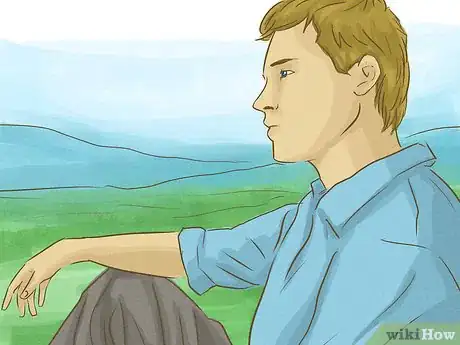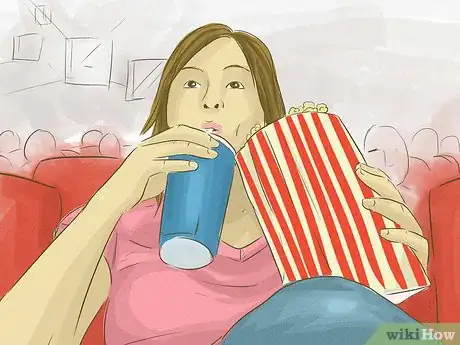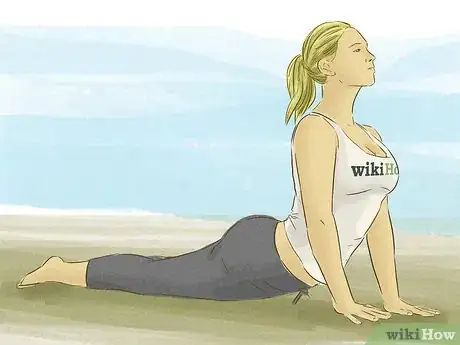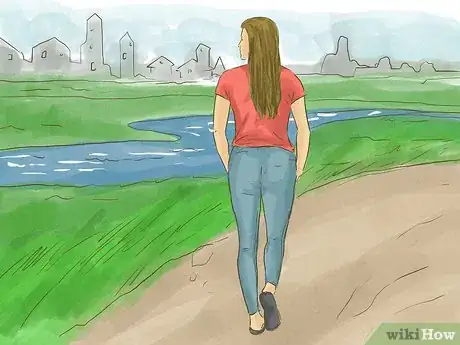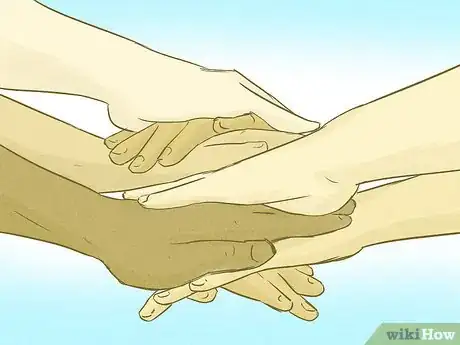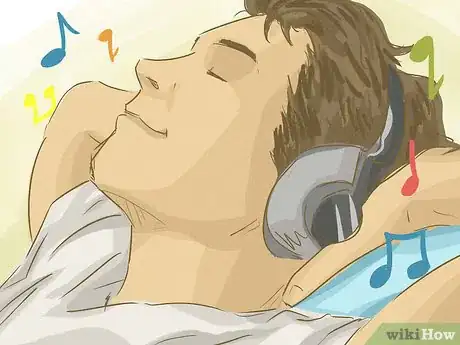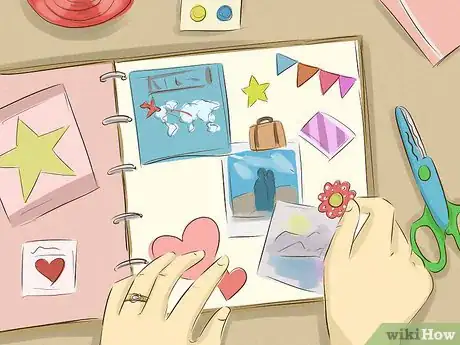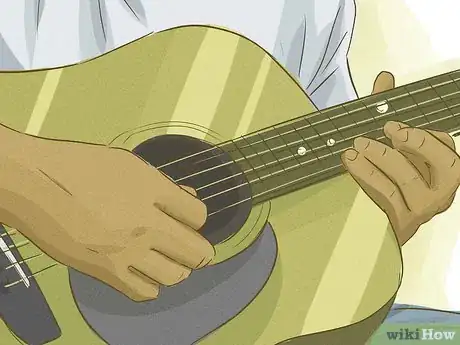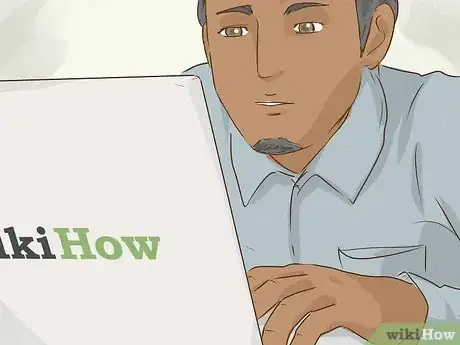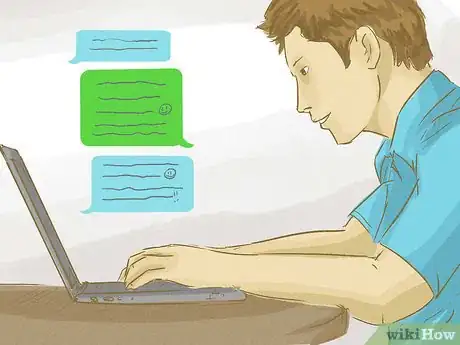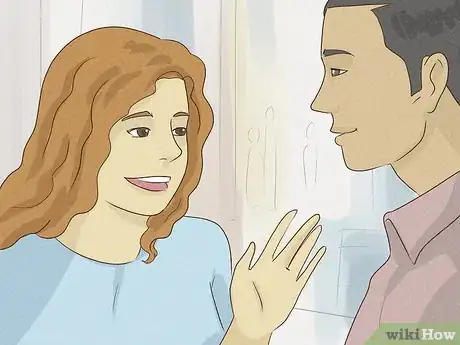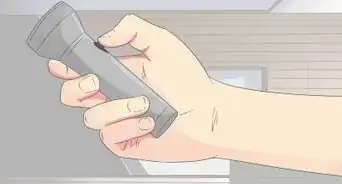This article was co-authored by Trudi Griffin, LPC, MS. Trudi Griffin is a Licensed Professional Counselor in Wisconsin specializing in Addictions and Mental Health. She provides therapy to people who struggle with addictions, mental health, and trauma in community health settings and private practice. She received her MS in Clinical Mental Health Counseling from Marquette University in 2011.
There are 10 references cited in this article, which can be found at the bottom of the page.
wikiHow marks an article as reader-approved once it receives enough positive feedback. In this case, 88% of readers who voted found the article helpful, earning it our reader-approved status.
This article has been viewed 1,721,957 times.
Whether you long for a boyfriend or girlfriend or miss your family and friends, you can learn to enjoy being alone. Keep in mind that while humans are social animals, that doesn't mean that we can't be perfectly happy outside of society too.
Steps
Learning to Love Your Solitude
-
1Learn to embrace being alone. Solitude is a time for reflection, for thinking about things more deeply. In a world increasingly focused on speed and competitiveness, solitude is precious and something to be treasured.[1]
- Being comfortable alone is a sign of healthy self-esteem.
-
2Try to be happy and optimistic. Happiness comes from within, regardless of your situation. Don't use being alone as an excuse for not enjoying your life! Choose to see the good things in life and work on having an optimistic outloook.[2]Advertisement
-
3Reflect on life and greater meanings of the world. Some of the time you spend alone can be focused on reflection. Make time to be introspective and think about your life. Consider your past, present, and future goals.[3]
- Above all, contemplation is one of the most important self-building things you can do. Think about what makes you you. What do you believe in? Why? Are there any things that don't seem right to you? What do you believe at face value (or accept as a matter of faith)?
-
4Avoid over-analyzing things. It is easy to read into experiences, feelings, thoughts, and attitudes of others and make judgements that are really founded on nothing more than your own naive perception. This can quickly become a negative activity and get you down. Realize that you may not have all the facts and that's just fine.
-
5Do everything you would normally do with a partner or friend. Many times it isn't the partner or friend you are missing, but the activities and hobbies you shared. Don't hold yourself back! Go out and do the things you enjoy.[4]
- For example, if you would have gone out to dinner or to a movie on a date, then take yourself out to a movie or to a nice restaurant.
-
6Exercise 3 times a week. Exercise not only gives you something to do, it also helps you stay healthy and feel good about yourself. Set aside 30 minutes 3 times a week to exercise. You can go to a gym if you want to be around people, or workout at home.[5]
- Rediscover the fun to be had in simple exercises. Riding a bike around your neighborhood becomes less work and more fun as you do it.
- Be consistent. Exercise takes willpower and diligence. Make a schedule and stick to it. Keep it easy at first and you will discover your limits. Or, join a gym and create new friends there.
-
7Spend time outside and in nature. It's a big world out there, and you're only seeing a small fraction of it. Avoid holing up in your home for days on end. Go outside, forget the people, and just enjoy what life has to offer. Once you do that, then people will want to know and be with you. Frankly, you won't have a choice but to have friends!
-
8Get involved by volunteering. Doing some charity work can make you feel good about yourself. It's also a great way to give back to your community and help people in need. Do an online search for volunteer opportunities in your area. You can find anything from volunteering at a hospital or helping out at a community theatre to coaching a youth sports team or feeding the homeless.[6]
Engaging in Creative Activities
-
1Write a story, journal, or blog to express your feelings. Writing not only increases your imagination, but also keeps you happy, which increases your optimism. You can also write some poetry or conduct research.[7]
-
2Read books to keep you entertained. You can read classic novels, genre fiction, poetry, or nonfiction. Time spent alone is good time to catch up on some of your reading. Not only is it fun and enjoyable, but it's also self-education and a way to round yourself as a person. You can also listen to audiobooks.[8]
- Consider spending some time with classics such as Moby Dick, Romeo and Juliet, The Martian Chronicles, or Great Expectations.
- Read a genre novel. For sci-fi, try Fahrenheit 451, and for horror, check out Salem's Lot. If you want a fantasy novel, read Harry Potter.
- Check out some poetry, such as "Charge of the Light Brigade," "Ulysses," "She Walks In Beauty," or "How Do I Love Thee."
- If you're interested in philosophy, you may want to read works by Socrates, Plato, Nietzsche, Descartes, Aristotle, Kant, Rand, and Marx.
-
3Listen to music that makes you feel good. No matter what kind of music you like, you can enjoy being alone when you're listening to a great song. Choose music you enjoy or music that brings back memories of certain events.[9]
- Listening to natural sounds like the sound of the thunder and rain, chirping birds, flowing rivers and such more sounds helps you clear your mind. It helps in relaxing and de-stressing, thus, leaves you happier and more calm when you are alone.
-
4Sing, dance, or play an instrument to express yourself. If you don't like singing, try dance. It really helps as you get engaged in something and research shows that exercising or dancing releases the bad emotions in person. You could also try out a new instrument, or hone your skills on one you already play. Remember that you aren't doing this for anyone else, it's for yourself, so just let go![10]
-
5Doodle or draw to help you relax. Drawing is a fun and effective activity to be tried during one's leisure time. You do not have to be a Picasso to draw but can continue painting and drawing as you wish. It helps to relax, portray your feelings and de-stress. You can see the result at the end after being satisfied with your own drawing![11]
-
6Try out those craft projects you've been putting on hold. Crafting things is a fun and creative activity. You can do woodworking, scrapbook, make robotics, use stamps, make models, design T-shirts, embroider, knit, and more! There are endless opportunities that not only fill your time but also result in a handmade object.[12]
-
7Play games to improve your critical thinking skills. Playing computer and video games can actually have positive results! Gaming develops your critical thinking and problem-solving skills and improves your hand-eye coordination. Fitness games can even help you get exercise.[13]
- Alternatively, you could play tabletop games like Dixit or King of Tokyo. There are games for every interest and skill level![14]
Taking Advantage of Learning Opportunities
-
1Learn about a new subject. Learning is the most important aspect of living alone and it helps to keep your brain busy and engaged. Without social responsibilities like spending time with family or a significant other, you'll be able to delve deeper into a new subject or interest.[15]
- You could focus on a specific subject, like geography or history, or learn a foreign language.
-
2Try out a new skill or hobby. You may want to try indoor activities, such as painting, yoga, mathematics, science, art appreciation, a musical instrument such as piano or flute. Or, you may want to try outdoor activities, like gardening, fencing, tennis, or golf. You could even try combination of both, meaning things you can do indoors and out, such as photography or drawing.[16]
- Learning isn't exclusive to books (although they are a great source of knowledge). You can learn to do anything by just practicing. Look for tutorials online if you're new to the field.
-
3Take courses online if you want more structure. If there's something you want to learn and would benefit from an instructor or routine, sign up for an online course. Sites like https://www.edx.org/ and https://www.thegreatcourses.com/ have excellent college level classes available to anyone and most of them are free.
Finding Connections with Others
-
1Get a pet if you are dedicated to caring for it. Pets provide affection and someone to talk to and care for. If you are aloof and self-sufficient, tropical fish, hamsters, budgies, or finches are great choices. If you like a little interaction, but not a lot of maintenance, try a cat. If you want to be very hands-on and spend tons of time with your pet, a dog might be right for you.
- Don't be fooled into thinking a smaller animal like a rabbit or bird won't need lots of care - a rabbit needs daily human contact and several hours of time to run about a day, not to mention cleaning it out. Fully research any animal you are considering as a pet then go to your local animal shelter, there are hundreds of lovely animals there just waiting for a home!
- Some animal shelters will let you 'foster' a pet, which gives the animal a much needed break from the confines of the shelter and gives you the companionship you crave without a long-term commitment.
-
2Join an online community. Don't limit your online activities to just games. Join forums or chat rooms to meet new people or interact with friends and family on social media. There are tons of online communities for various age groups as well as for certain interests or hobbies, so search until you find the right group for you.[17]
-
3Chat with your neighbors, classmates, and coworkers. Just because you live alone doesn't mean you can't have interactions with others. Talk to the people you see on a daily basis at home, work, or school. You can also strike up a conversation with the barista, chat with the librarian, or make small talk with the person next to you on the train.[18]
-
4Make sure that you are not isolating yourself on purpose. If you find that the reason you are spending so much time alone is because you are turning down invitations and avoiding people, then this may indicate a larger mental health issue. Seek the help of a mental health professional if this is the case. Being lonely sometimes is normal, but it can be unhealthy if it goes on for a long time.
Warnings
- Just think that being alone is temporary, you will always meet new people⧼thumbs_response⧽
- Be careful when talking to strangers on the Internet. You hear it all the time, but when you are sad, lonely, depressed or bored, you are more vulnerable and more likely to go along with someone else's ideas. Talking is fine, but leave it at that.⧼thumbs_response⧽
- It's important not to forget others in your life - keep in touch with other people and continue to expand your social network. For extroverts, enjoying being alone may come as more of a challenge.⧼thumbs_response⧽
References
- ↑ https://www.success.com/blog/how-i-learned-to-enjoy-being-alone
- ↑ https://www.success.com/blog/how-i-learned-to-enjoy-being-alone
- ↑ https://www.riskology.co/alone/
- ↑ https://www.riskology.co/alone/
- ↑ https://www.forbes.com/sites/lizryan/2017/09/04/doodling-daydreaming-and-eight-other-ways-to-tap-your-creative-side/#1fbc93a45575
- ↑ https://www.riskology.co/alone/
- ↑ https://www.riskology.co/alone/
- ↑ https://www.forbes.com/sites/lizryan/2017/09/04/doodling-daydreaming-and-eight-other-ways-to-tap-your-creative-side/
- ↑ https://liveforlivemusic.com/features/10-positive-benefits-of-listening-to-music-according-to-science/
- ↑ https://www.forbes.com/sites/lizryan/2017/09/04/doodling-daydreaming-and-eight-other-ways-to-tap-your-creative-side/
- ↑ https://www.forbes.com/sites/lizryan/2017/09/04/doodling-daydreaming-and-eight-other-ways-to-tap-your-creative-side/
- ↑ https://well.blogs.nytimes.com/2016/01/25/the-health-benefits-of-knitting/
- ↑ https://www.sciencedaily.com/releases/2016/03/160308135128.htm
- ↑ https://geekandsundry.com/10-great-games-for-tabletop-beginners/
- ↑ https://www.riskology.co/alone/
- ↑ https://www.developgoodhabits.com/how-to-be-happy-alone/
- ↑ http://sixtyandme.com/6-ways-to-fight-loneliness-if-you-live-alone/
- ↑ http://sixtyandme.com/6-ways-to-fight-loneliness-if-you-live-alone/
About This Article
To enjoy being alone, try to remember that solitude is a great opportunity to reflect and grow as a person. When you're alone, you can pick up new hobbies, like writing, drawing, or spending time in nature. You can also learn new things, whether it's a foreign language or how to play an instrument. No matter what you decide to do with your alone time, keep an optimistic outlook! To learn how to find connections with others, including online communities and neighbors, keep reading!


